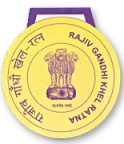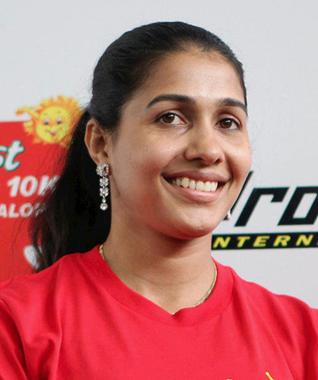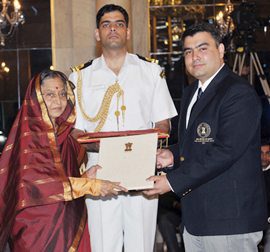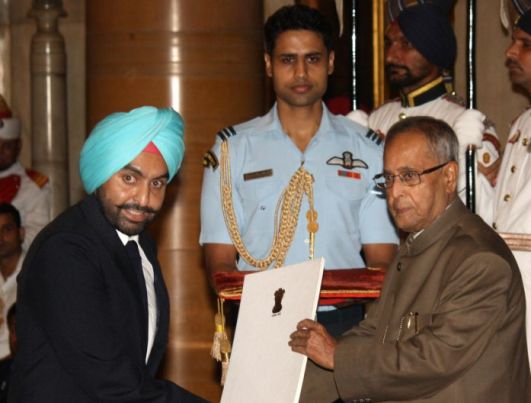Jyotirmoyee Sikdar Rajiv Gandhi Khel Ratna Awarded In 1998

Jyotirmoyee Sikdar
Award Name : Rajiv Gandhi Khel Ratna
Year of Award : 1998
Award for : Sports and Games
Location : Navadwīp, Bengal, India
Jyotirmoyee Sikdar is a former athlete and parliamentarian from Bengal. She was born on December 11, 1969 in Debogram a town in Nadia district in West Bengal, Jyotirmoyee began her athletics career as a worthy successor to Shiny Abraham in the 800 metres but extended her area or excellence to the 400 and 1,500 metres as well. With the help of her father, a retired pole-vaulter, she built up her stamina by running through the fields and simultaneously completing her graduation in physiology.
Jyotirmoyee made her national debut with a Silver Medal in 800 metres at the All-India Open Meet in 1992. A Gold medal in the Open Nationals of the following year earned her a berth to the 1993 South Asian Federation (SAF) Games at Dhaka where she picked up a Silver in the 1,500 metres. With a Gold at the Singapore Open in 1993, she went on to break the national mark in the 1,500 metres at the National Athletics Meet in 1994. In the trials for the Asiad '94 she came under Shiny Abraham's 800 metres mark and confirmed her place in the Indian team to the 1994 Asian Games at Hiroshima where she took part in the two events but could manage just a fourth place in 1,500 metres.
She was a part of the 4x400m relay team that won the gold at the World Railways Meet in London in 1994. She took part in the World Championships in Sweden followed by the 1995 Asian Track & Field Meet in Jakarta where she claimed a Cold in the 800 metres and her team won the Silver in the 4x400m relay. She created a new 800 metres national record in 1995 and was named Indian Railways Best Sportsperson in 1996, the year she won Gold in the 400 metres at Taipei and was a part of the Indian 4x400m relay team at the Atlanta Olympics. She participated twice in the International 1TC Meet, winning a Bronze in 1994 and a Gold and Silver in 1997. Jyotirmoyee Sikdar won two Gold Medals and a Silver medal, in the 1998, Bangkok Asian Games, where she cheered up the nation, electrified the sagging morale of the participants and silenced the media criticism of the sports officials. The 29 year-old athlete returned home to be hailed as the 'New Golden Girl' of India. Already an Arjuna Award winner (1995), she got the 'Most Valued Performance Award' instituted by Samsung. There years later she became the first athlete to be honoured with the Rajiv Gandhi Khel Ratna Award (1998).








